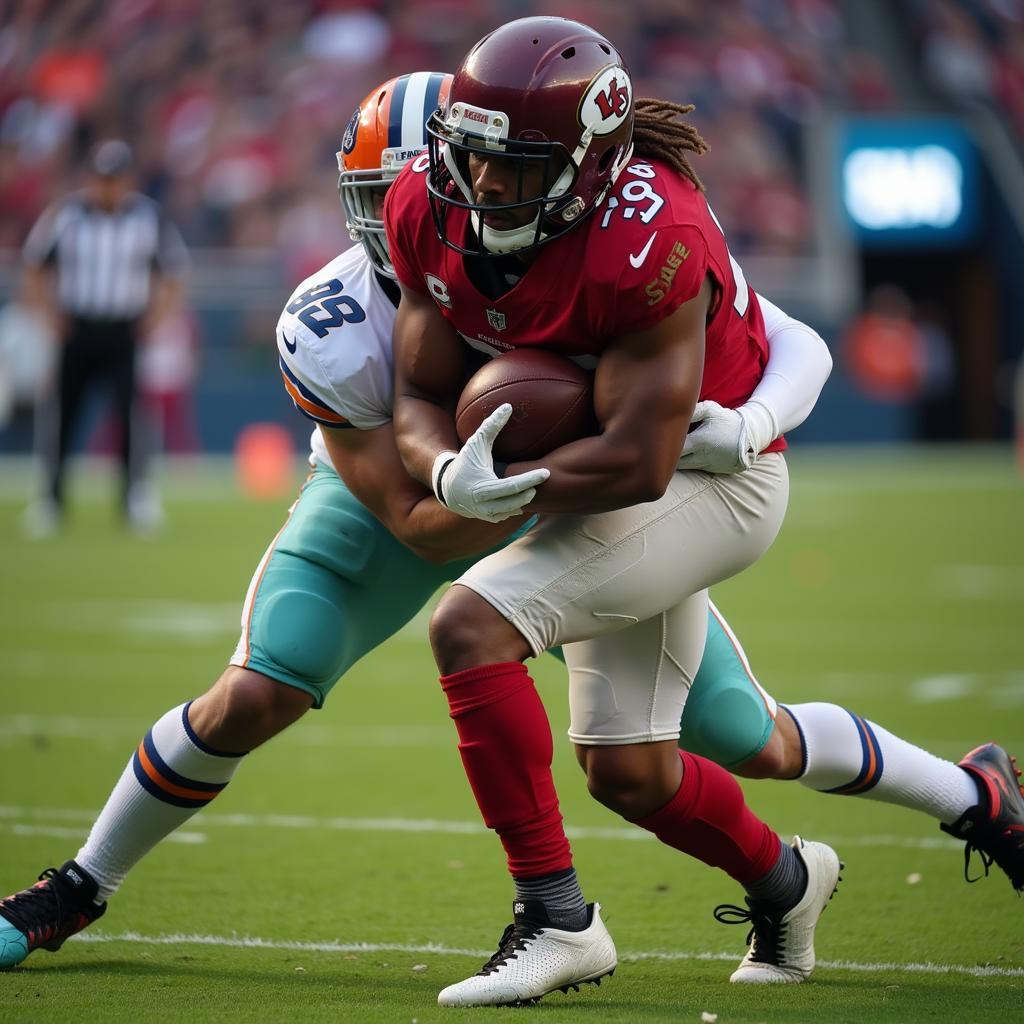Understanding Meniscus Tears: A Footballer’s Perspective
November 4, 2024A meniscus tear is a common knee injury, especially in sports like football. It can sideline a player for weeks or even months, impacting their performance and career. Understanding the causes, symptoms, and treatment options is crucial for both athletes and fans.
What is a Meniscus Tear?
The meniscus is a C-shaped piece of cartilage that acts as a shock absorber and stabilizer in the knee joint. There are two menisci in each knee, the medial meniscus and the lateral meniscus. A meniscus tear occurs when this cartilage is damaged, often due to a twisting motion or direct impact to the knee. These tears can range in severity, from minor to complete ruptures. This can affect anyone, not just athletes, but the demands of professional sports make footballers particularly vulnerable.
Causes and Symptoms of a Meniscus Tear
A sudden twist or rotation of the knee is a common cause of a meniscus tear. This can happen when changing direction quickly, pivoting, or landing awkwardly after a jump. Direct blows to the knee during tackles can also cause this injury. Symptoms often include pain, swelling, stiffness, and a clicking or popping sensation in the knee. Sometimes, the knee might feel like it’s giving way or locking up.
 Footballer with a Meniscus Tear
Footballer with a Meniscus Tear
Diagnosis and Treatment Options
Diagnosing a meniscus tear typically involves a physical examination and imaging tests, such as an MRI. The doctor will assess the range of motion, stability, and tenderness in the knee. Treatment depends on the severity and location of the tear. Minor tears may heal on their own with rest, ice, and physical therapy. More severe tears, particularly those that cause locking or instability, might require surgery.
Recovery and Rehabilitation After a Meniscus Tear
Recovery time varies depending on the treatment. Non-surgical treatment may take several weeks, while surgical recovery can take several months. Rehabilitation plays a vital role in restoring strength, flexibility, and stability to the knee. A physical therapist will guide the individual through exercises tailored to their specific needs.
Preventing Meniscus Tears in Football
While it’s impossible to completely eliminate the risk of injury in football, certain measures can help reduce the chances of a meniscus tear. Maintaining strong leg muscles, particularly the hamstrings and quadriceps, can provide better support for the knee. Proper warm-up and cool-down routines are crucial for preparing the body for activity and minimizing the risk of injury. Wearing appropriate footwear and using proper techniques during training and matches are also essential.
Living with a Meniscus Tear: Long-Term Considerations
While many individuals recover fully from a meniscus tear, some may experience long-term issues, especially if the tear is severe or untreated. Osteoarthritis is a potential complication, particularly if a significant portion of the meniscus is damaged. Regular exercise, maintaining a healthy weight, and following medical advice can help manage these long-term risks.
 Long-term Meniscus Tear Management
Long-term Meniscus Tear Management
Conclusion
A meniscus tear is a significant injury that can impact a footballer’s performance and career. Understanding the causes, symptoms, and treatment options is essential for managing this injury effectively. By taking preventative measures, seeking prompt diagnosis, and adhering to a comprehensive rehabilitation program, individuals can minimize the long-term effects of a meniscus tear and return to their active lifestyle.
FAQ
- What is the most common type of meniscus tear?
- How long does it take to recover from a meniscus tear?
- Can I play football again after a meniscus tear?
- What are the long-term complications of a meniscus tear?
- How can I prevent a meniscus tear?
- What are the symptoms of a torn meniscus?
- When should I see a doctor for a knee injury?
Related Articles
- Knee Injuries in Football
- The Importance of Physiotherapy in Sports
- Returning to Sport After Injury
For support, contact us at Phone Number: 0396443476, Email: [email protected] or visit us at 23 Tháng 3, Đắk Nia, Gia Nghĩa, Đắk Nông, Việt Nam. We have a 24/7 customer service team.